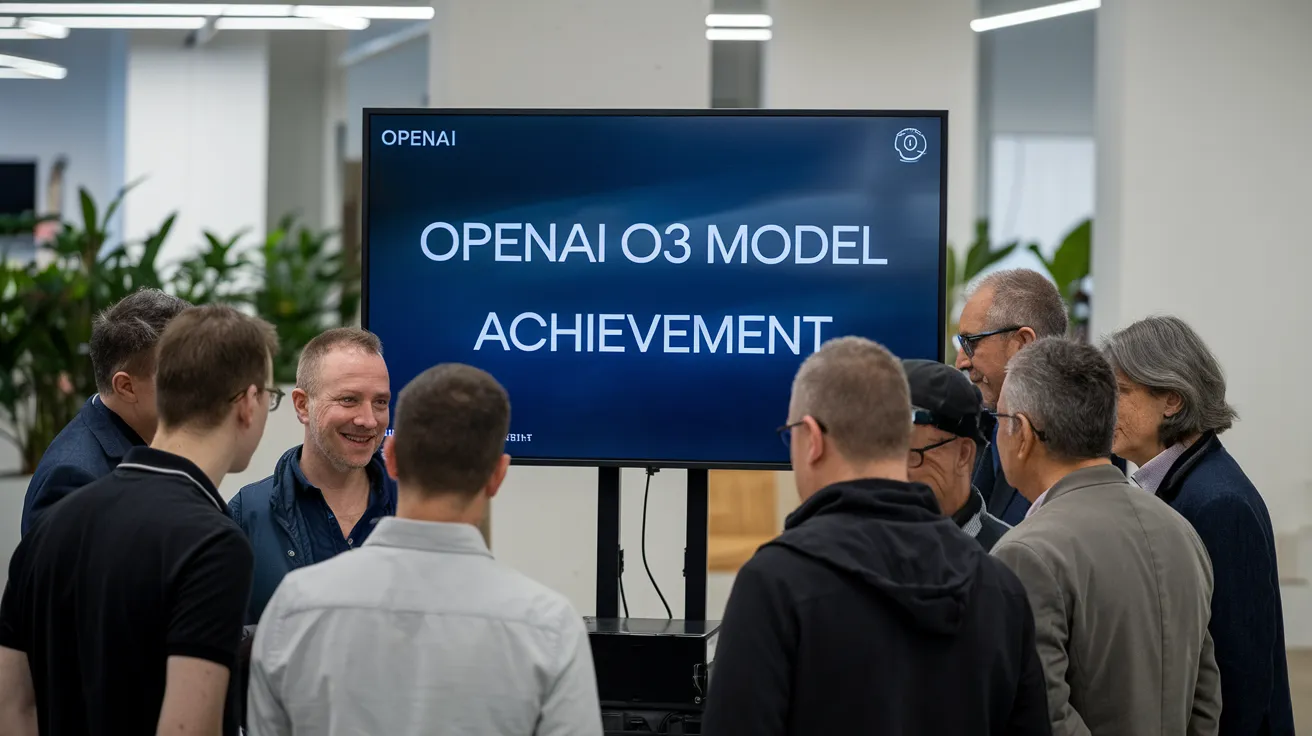OpenAI’s o3 Model Excelled in Reasoning Tests – Yet AGI Remains Out of Reach

OpenAI’s o3 Model Achieves a High Score on the ARC Challenge
OpenAI’s newly introduced o3 artificial intelligence model has garnered attention for achieving a remarkable score on the ARC Challenge, an evaluation designed to assess AI reasoning capabilities. Although the achievement sparked speculation about the model nearing artificial general intelligence (AGI), experts caution that this represents merely a step in the long journey toward true AGI.
Understanding the ARC Challenge
The ARC, or Abstraction and Reasoning Corpus, Challenge was established in 2019 by Google engineer François Chollet to evaluate how effectively AIs can uncover patterns linking colored grids in abstract visual puzzles. The goal of the challenge is to demonstrate reasoning, akin to general intelligence. However, the test includes computing power limits, ensuring that brute-force methods do not skew the results.
o3’s Performance
OpenAI’s o3 model achieved an official score of 75.7% on the semi-private portion of the ARC Challenge. The cost of this achievement was approximately $20 per visual task, adhering to the conditions set by the competition. Despite this, o3 did not qualify for the grand prize due to failing to meet the lower computing cost requirements set for the more difficult private challenge.
In an unofficial capacity, o3 scored 87.5% using significantly enhanced computing power, although such an approach pushes the budget into the thousands of dollars per task. Comparatively, the typical human score averages around 84%, and achieving 85% guarantees a win in the competition.
AGI Status Still Unclear
Despite the notable performance, ARC Challenge organizers explicitly stated that such benchmarks should not be interpreted as proof of achieving AGI. OpenAI’s o3 model exhibited shortcomings, failing to solve more than 100 visual puzzles even when using substantial computing resources, underscoring the need for continued work.
Expert Opinions on o3’s Progress
Scholars in the field emphasize that while o3 represents a significant milestone, the road to AGI remains lengthy. Chollet suggests that true AGI could be recognized when generating tasks that challenge both humans and machines becomes impossible. Other researchers point out that the model’s reliance on advanced computing could dilute the essence of demonstrating genuine reasoning skills.
What Lies Ahead for OpenAI and the AI Community
The advancements exhibited by o3 arrive amid a period of slower progress compared to the prior year. Nonetheless, the results suggest that models like o3 could surpass benchmarks in the future. Plans for a second set of challenging tests for the ARC Challenge are already underway for 2025, promising further scrutiny on the capabilities of next-generation AI systems as the quest for AGI continues.